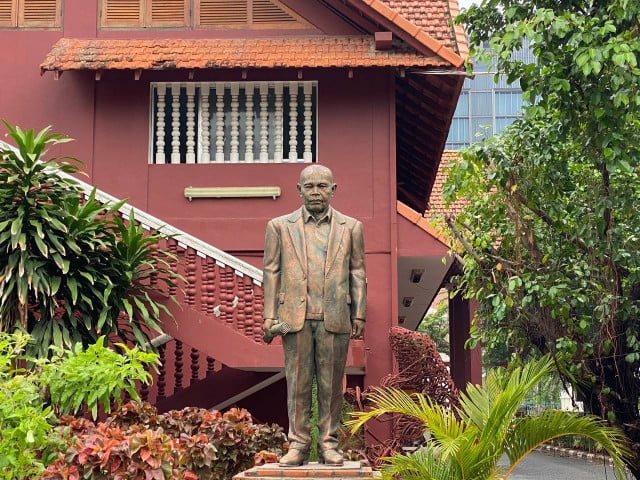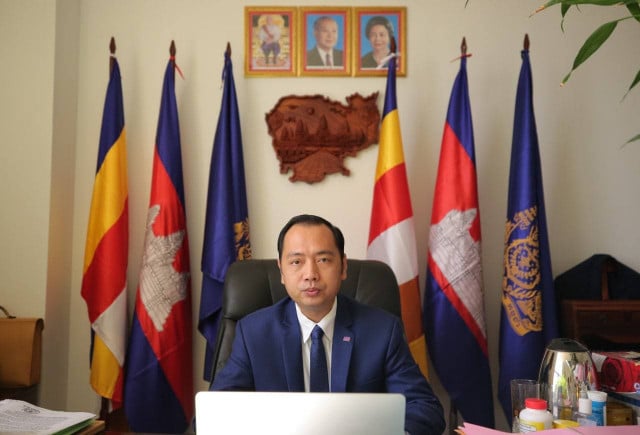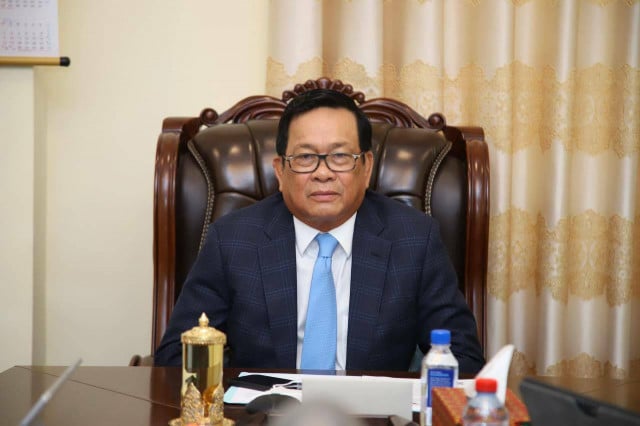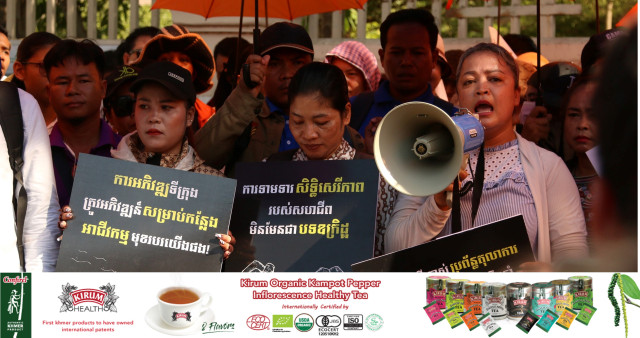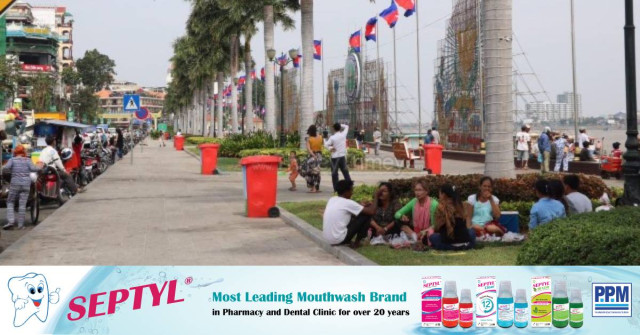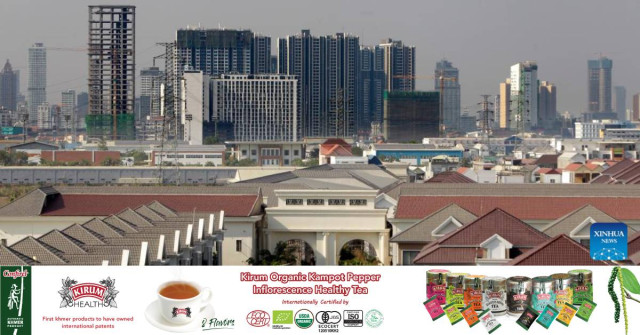Doing Business Should Involve Considering the Social Impacts
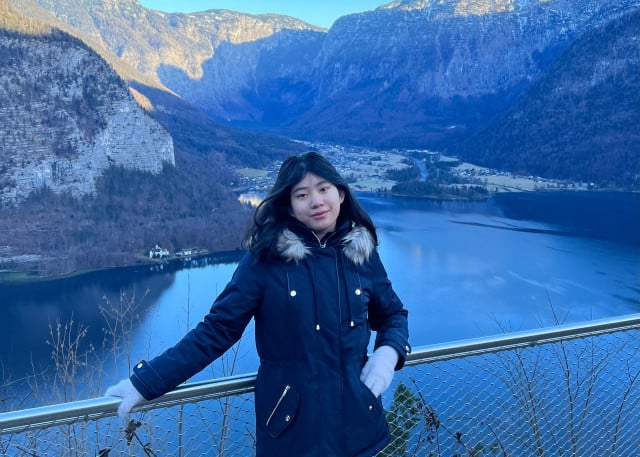
- By Teng Yalirozy
- August 21, 2023 9:43 AM
PHNOM PENH — As society goes through constant development, how can businesses play a role to address social issues and help build the future? Social businesses and enterprises have crucial roles to play both to ensure that their operations generate profits and help support people attempting to bring solutions to the challenges that their communities face.
Vong Sodavannid is a 21-year-old junior student who is majoring in Global Studies and Social Entrepreneurship (GSSE) at Thammasat University in Thailand. During an interview, Sodavannid spoke of the importance of social businesses, her goal to help address some society-related problems as well as her education journey in Thailand.
Teng Yalirozy: The GSSE program sounds interesting and yet confusing. What does GSSE involve at Thammasat University? What do you study?
Vong Sodavannid: It is a major in which we explore many sectors ranging from private to public. It’s very diverse. It’s a kind of project-based learning where we identify social problems and define a project that can help address the issues. We learn many things to understand socio-cultural, political, and economic issues because those are the stems of the local, regional, and global problems. GSSE graduates can help with social businesses. For instance, we have a project idea to improve the education system in Cambodia. So, we propose the idea to find sponsors for the project implementation. All in all, we learn to understand the deep roots of certain problems and come up with projects or businesses that can have long-term impacts on the problem and society.
Teng Yalirozy: Basically, you learn everything for the concept and comprehension of various social problems so that you can propose and set up projects. What else can GSSE graduates contribute or do?
Vong Sodavannid: Well, some people like designing—not profound conceptual design like architecture. They like the idea of designing, so they can do a startup—which is also part of my major. They can also work with NGOs, the private sector, or public institutions.
Teng Yalirozy: What position can they hold in a private company?
Vong Sodavannid: It’s very diverse. They can be content writers, project managers, or project coordinators. Currently, I am doing my internship with the Smart Axiata Company, working in the Department of Corporate Affairs. Smart has a number of projects centered on education, environment and tech. For instance, they have a startup competition for education and plastic education. As the corporate affairs intern, my job is mainly supporting two main scopes of work under the department which are Corporate Communication and Corporate Social Responsibility or CSR.
Teng Yalirozy: Why did you decide to major in Social Entrepreneurship?
Vong Sodavannid: It's complicated, but I think it’s the skills that we should have. I always wanted to study in Thailand through a scholarship. I was seeking an international program because I did not know the Thai language. I did a great deal of research about the universities in Thailand, and I came across one video on the School of Global Studies at Thammasat University that captivated me. They said that “[y]ou can find your passion here.” When I graduated from high school, I did not know what I wanted to do. Thankfully, I came across that major, and I know what I can do.
Teng Yalirozy: Now, are you sure about what you want to do? Or are you still in the process of exploring?
Vong Sodavannid: I think I want to be a helpful citizen of society. We can start small. For instance, you can start by reducing the use of plastic cups. It could also be the example of Epic Arts—a social enterprise that helps change things for the better for people with disabilities. I want to be able to do something that can make a positive impact on communities. Mostly, my courses involve the concept of Sustainable Development Goals (SDGs). So, I won’t stray far from the SDGs.
However, it depends on the students. In the fourth year, we will be asked to choose three tracks: a thesis for those who want to continue their master’s degree, create community project, and internships.
Teng Yalirozy: What do you think are the problems facing Cambodian society? Do you have any particular project in mind that you want to do when you come back to Cambodia?
Vong Sodavannid: There are many problems. The deeper we dive into the problems, the more we see that they are interconnected. I used to do schoolwork about the lack of technology integration in public schools in Cambodia. My teammates [from a senior class] and I proposed the idea of establishing a learning website integrated into the school curriculum. We customized it as a school system. The project contains many complicated steps. When we see someone do a donation or campaign, we don’t call it a project. It’s just an event because donations or campaigns do not have a long-term impact. We need to have a specific end goal for our project. For example, when school supplies are donated to children, that donation is not called an impact. That’s just a result. The impact is bigger: It’s about changing habits or long-term behaviors.
Teng Yalirozy: Talking about scholarships, how difficult was it to win a government scholarship to study in Thailand?
Vong Sodavannid: I had planned this since 2018. When I finished high school in 2019, there were no scholarships to Thailand being offered. I applied for one in 2020. I made a lot of preparation. I asked the advice of senior students about the process and did research. I was asked to choose two options for the university I wanted to attend. For the first round, I took an English test, and in the second round, I took mathematics, physics, chemistry, and biology tests.
Teng Yalirozy: It was such a journey. You were in Thailand during the COVID-19 pandemic, doing your freshman year online. What messages do you have for those who want to study abroad or for undergraduate students in general?
Vong Sodavannid: I have been thinking a great deal this year. Choosing friends has a big effect on our education journey, especially when we are studying abroad. Admit that things happen and appreciate your school life. I want to encourage them to study hard and make the most out of their school life as youths. Don’t worry too much; you’ll get the job once you graduate. Choose what you want to do and are passionate about.






